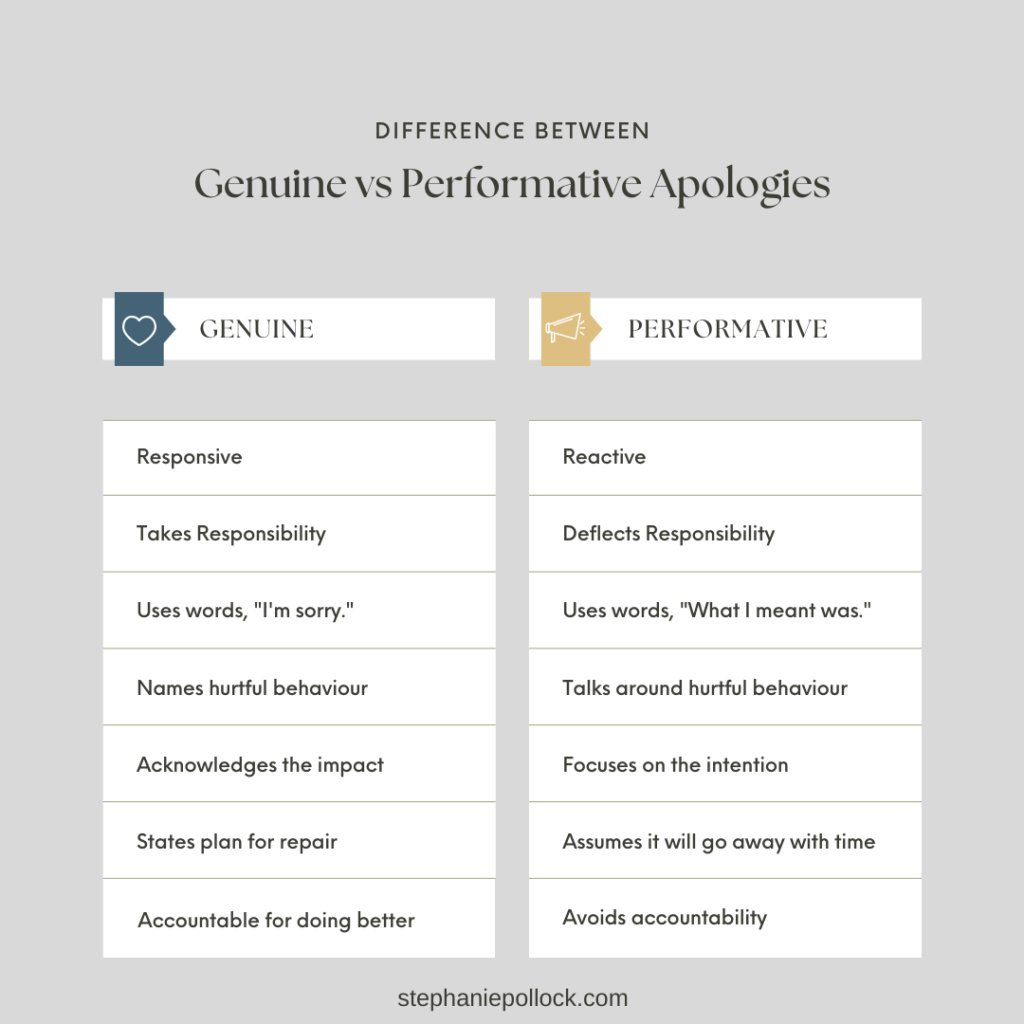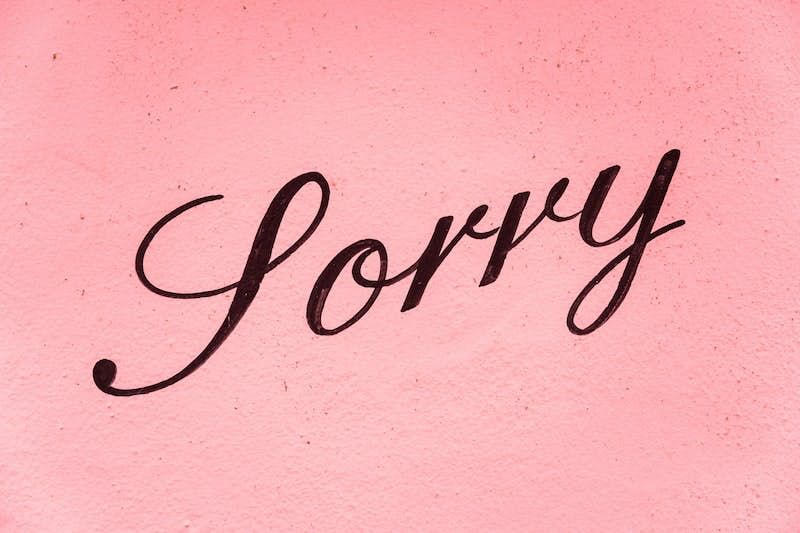Want to set yourself apart as a leader?
(heck: it’ll set you apart as a human too)
Learn how to apologize well.
Seriously. It’s an instant differentiator.
The kind of differentiator where people will whisper to each other, “Did she just apolgize? Like, without making it about her?!” and place their hands across their foreheads to make sure they’re not feeling feverish.
That’s how uncommon it is.
And really, it makes sense.
It’s a skill many of us never learn, though the consequences can be devastating when we do it poorly.
[side note: this is such an opportunity for parents to do more than, “Tell your sister you’re sorry NOW!” — guilty btw]
We don’t have to look far to see examples of “apologies” gone wrong, and we know instantly if the apology is genuine or performative.
#hellopolitics #hellocelebrities #hellointernet
Here’s a quick reference:

Unfortunately, old school leadership advice suggested leaders avoid apologizing at all costs for fear of appearing vulnerable.
And if public pressure forced their hand, many would offer faux apologies accompanied with justifications and deflections.
That might have worked (sort of) at one point, but in 2022 and beyond, leaders who sidestep genuine apologies put themselves at tremendous risk for: loss of trust, public condemnation and most of all, harm to those they’ve hurt.
Thoughtful, effective, smart leaders don’t let their egos or authority get in the way of admitting when they’ve made a mistake or caused harm. They understand that it’s a cornerstone to building (and maintaining) trust and connection with those they lead.
And that without that trust and connection, they know that their leadership efforts won’t go far, for long.
Great leaders are courageous and strong enough to say, “I messed up. I’m sorry, and here’s exactly what I’m going to do to ensure it never happens again.”
May we learn how to apologize well,
Steph
p.s. A version of this essay originally appeared on LinkedIn. If you’d like to add your thoughts to the apology conversation, you can do so here. I’d love to read what you think!



